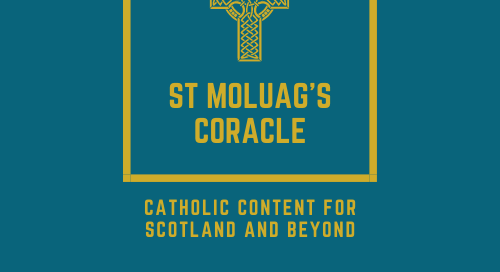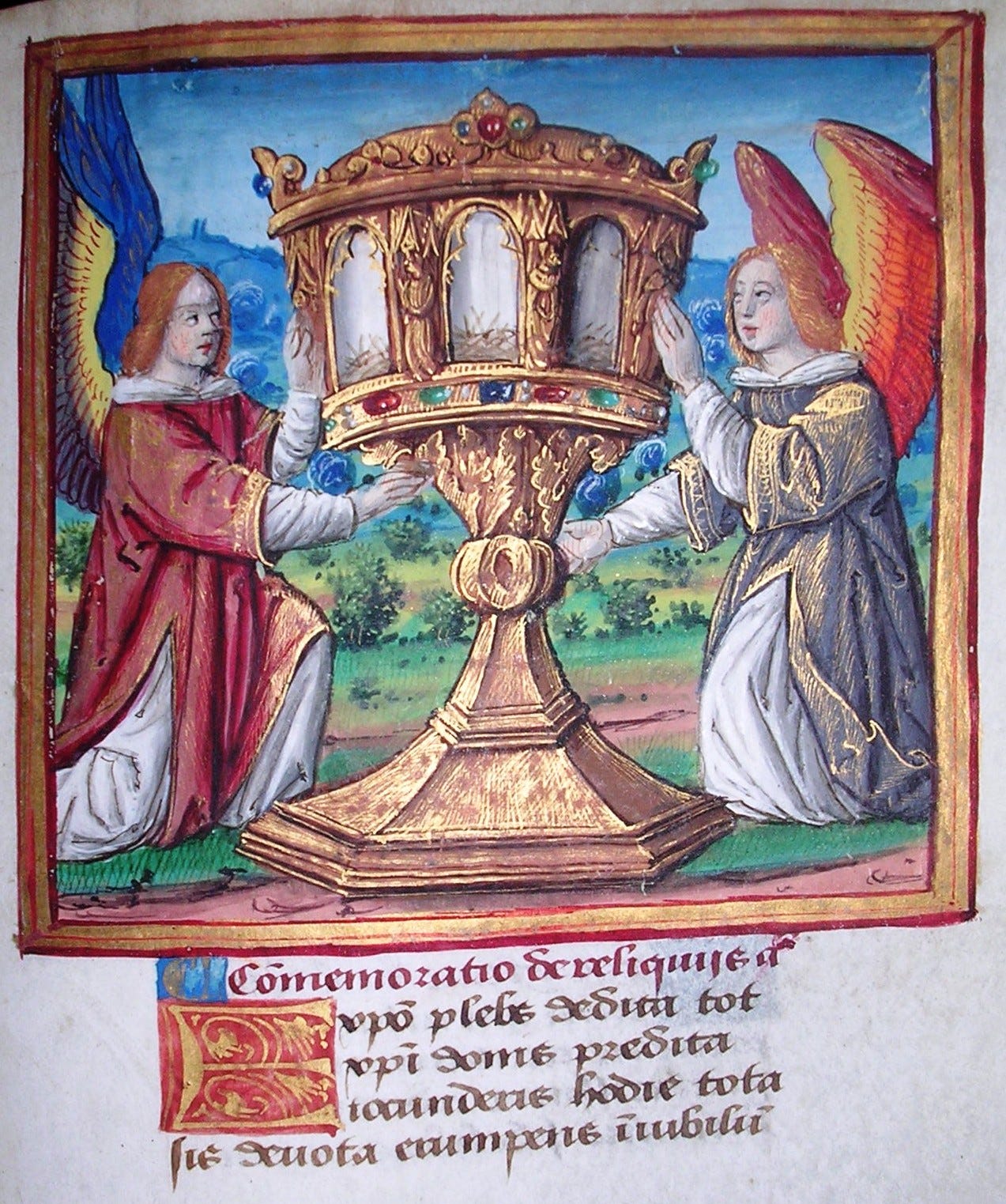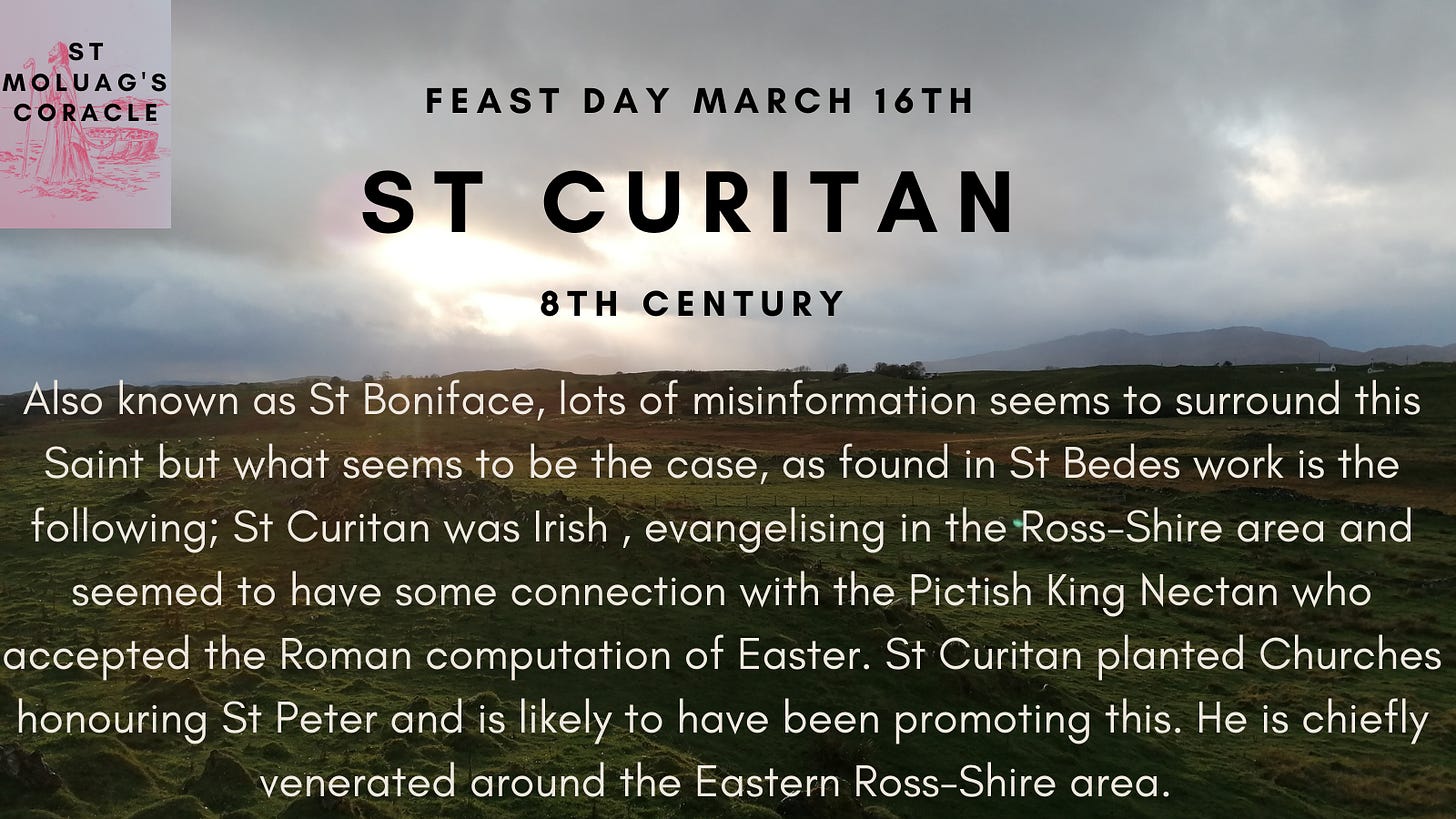You Go Into the Vineyard Too
Eileen Clare Grant talks about our calling, Mike Collins gives us a brief history of St John Ogilvie and we learn a bit about Mary Queen of Scots. Our lesser-spotted Saint is St Curitan. Welcome!
"Vineyard Sunset"by Chris Gin is licensed under CC BY-NC-ND 2.0
When we hear the word ‘vocation’ we tend to think of a call to the priesthood, or to religious life in a convent or the missions. And, Yes, the Lord needs priests to serve him at the altar; without priests there can be no Mass, no sacramental reconciliation, no giving of the Holy Spirit in Confirmation, no anointing of the sick. We should always be alert to the possibility that God is calling to young men in our midst. Ask yourselves – is it him? Is it – amazingly, unbelievably, humbly – me?
Yet the Lord of the Harvest does not call labourers only to the ministerial priesthood or to the cloister. He calls each and every one of us for we all, through our baptism, belong to His workforce. Each of us is a member of His Body, His Church, “yet entrusted with a unique task, which cannot be done by another and which is to be fulfilled for the good of all.” He may call us to a different task at different times of our lives: when we are young, when we marry and have children, when we go out into the market-place to seek employment, when we are ill, when we are old, even when we come to the end of our lives, for “according to the divine plan, each individual human being lives a life of continual growth, from the beginning of existence to the moment when the last breath is taken” (JPII). And remember, we’re not just labourers, but part of the actual vineyard: “I am the vine, you are the branches.” We can do anything in Christ Jesus.
What is my vocation? To what task is God calling me? We often have a reluctance to “put ourselves forward” or we imagine that our little talents are not very important. All we receive from God is pure gift and we should receive it in grateful humility; but humility is misplaced if we then decline to use what God has offered us in His service and in the service of our neighbours. God’s grace is given freely and abundantly, to be used for the building up of His kingdom here and now, not stored up and hugged to ourselves for some vague heavenly future. The first and greatest gift God gives us after He has given us life, is given in Baptism, through which we are all granted a share in Christ’s mission as priest, prophet and king.
Called by God by name, we are called to be kings, not to be served, but to serve; to be prophets, to proclaim the Good News of God’s love; to be priests: some to act “in the person of Christ as Head” at the altar, but most as members of the “priesthood of the laity”. As such, we are all offered a personal role of great dignity. The Lord actually trusts me, me, with a special job! And whether it is running the country or serving up the tea or teaching or lending an ear to my neighbour, I should be aware of that trust and answer His call as best I can.
‘Keep watch over your manner of life, dear people, and make sure that you are indeed the Lord’s labourers. Each person should take into account what he does and consider if he is labouring in the vineyard of the Lord’ (St Gregory the Great).
The Christian vocation is a call to spread the Gospel, to carry Christ with us wherever we go, to whomsoever we meet, in whatever circumstances we find ourselves: in our homes, our schools, our workplaces; in the street, the marketplace, the political arena, to manifest Christ to the world. We are called by God to speak out wherever we encounter injustice or a downgrading of human dignity; to bring Christian values into society, to defend the rights of the weak, vulnerable and voiceless in our midst. We are all called to build “a kingdom of truth and life, a kingdom of holiness and grace, a kingdom of justice, peace and love”. I cannot do much building if I can’t accept that God is calling me, if I allow the sense of my unworthiness to stop me responding. Of course I’m unworthy, but the Father loves me anyway, Jesus suffered and died for me anyway, and the Holy Spirit goes on giving me gifts and strength to use them.
How do I know what my particular vocation is? Jesus always started where people were: he called fishermen to be fishers of men. God starts from where we are: the chances are that where we are and what we’re doing is where God wants us to be, or at least where He wants us to begin. If you’re young, you’re probably at school or college, but already you are “the Church of today and the hope of tomorrow” (JPII). Older members of the Body have their experience of life to pass on, and should never “feel underestimated … but as participants at a time of life which is humanly and spiritually fruitful” (JPII). Effective witness to the Lord does not require extra-special strength or skill or intellect; it calls for faith and hope and love and a joyful acceptance of mission.
The Church groups the Sacraments of Marriage and of Holy Orders together as “ two sacraments at the service of communion … directed towards the salvation of others… They confer a particular mission in the Church and serve to build up the People of God.” Yet we live in a society which increasingly devalues the meaning of marriage and family life. Marriage too is a vocation, a call from God, and nurturing children is a calling most precious in His eyes. In the ‘domestic church’ of the family, married couples and families can manifest to society Christian values and can help transform a damaged world.
How can I tell if God is calling me? How do I respond? Pray fervently; listen attentively; be open to God’s Spirit. Ask around! God often communicates with us through others, ordinary people like ourselves, people whose voices we might easily ignore because we’re too deafened by the clamour of the world or because we expect a ‘message’ from on high giving precise instructions. Other folk are often more able than ourselves to discern where our talents lie. Answering a call from God – whether to the ministerial priesthood or to an active role in the lay priesthood – may involve sacrifice, sometimes a considerable sacrifice, but isn’t it worth it: to know that we are doing God’s work, that we are carrying on Christ’s mission to the best of our abilities? You go into my vineyard too.
Eileen Clare Grant
It’s a bit 16th Century this week with a brief life of St John Ogilvie by Mike Collins and we showcase some of the latest offerings from the Scottish Catholic Historical Association with their ongoing series on Mary Queen of Scots, as well as a portion in the current Jesuits in Britain Exhibition that is online and free, dealing with a famous relic and its link with Mary.
Images from St Thomas’s Keith
As a Keith man born and bred, I have known John Ogilvie for all of my 66 years, becoming more involved with his remarkable life in the second half of that time. He was Blessed John Ogilvie in my youth, then in 1976 the Jesuit martyr, a native of my area of Banffshire, became the first Post Reformation saint in Scotland when canonised at St Peter’s in Rome.
Mary Queen of Scots
Image: Adam Blackwood, Histoire et martyre de la Royne d’Escosse…Avec un petit livret de sa mort (Paris, 1589), opposite p. 12
There have been some interesting talks and exhibtions recently on the woman commonly known as Mary Queen of Scots. Here are a few links below.
Jesuit Exhibitions: Mary Queen Of Scots’ Thorn & Bd Thomas Percy
The Jesuits In Britain Archive has produced an online exhibition of many of its objects and manuscripts for free. They devote one particular part to Mary Stuart and the ‘Thorn’. Click here to visit their website.
Illumination from a prayer book owned by the French royal family
The Catholic Afterlife of Mary Queen of Scots, Part 1 & 2: Early Images of a Martyr.
The Scottish Catholic Historical Association are doing a series of blogs on Mary Stuart, Queen of Scots. Below you will find an article by Dr Steven Reid of Glasgow University and then a talk he did recently for the SCHA.
Part 1: Early Images of a Martyr
Part 2: Mary’s Afterlife
St Curitan, 8th Century, Feast day: 16th March.
If you have missed any past Coracles you can click here. Most of our past articles are on the roughbounds website as well as talks from Bishop Hugh Gilbert and the Highland Mens Conference.
If you tweet find us on @stmoluagscoracle.
We have also started a GoFundMe page that will fund the development of a new Catholic Charity in Scotland - Mary’s Well. We envisage Mary’s Well to have two broad roles; to help people grow in their love of God and His Church, and reconnect people with Scotland’s Catholic past, revealing her Saint’s and veneration of the Blessed Mother. We will use platforms like this, social media and in the future relevant conferences, seminars and retreats to acheive these aims. ***More informaton will follow soon***
God Bless from Eric and Team










